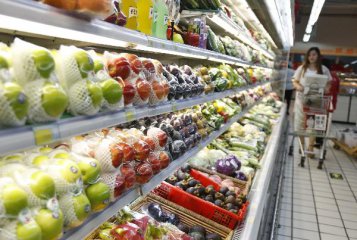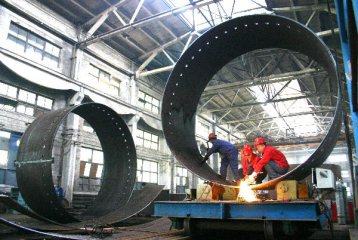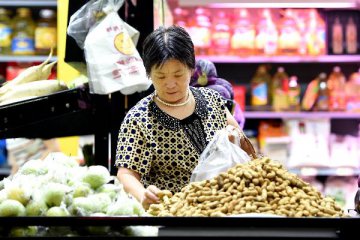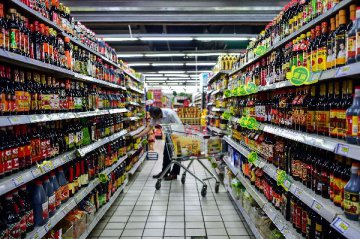
China's rising month-on-month inflation and narrower decline in producer prices in August have provided fresh evidence of a steadying economy, experts said.
China's consumer price index (CPI), a main gauge of inflation, rose 0.1 percent in August on a month-on-month basis, the National Bureau of Statistics (NBS) announced Friday.
It grew 1.3 percent year on year in August, down from July's 1.8 percent, largely due to eased food prices, according to NBS statistician Yu Qiumei.
The price of pork rose 6.4 percent year on year in August, slowing from a 16.1-percent rise in July.
The pace of August inflation was the slowest since October 2015 and marked a fourth consecutive monthly drop from 2.3 percent in April, when the CPI reached its highest level since July 2014.
"However, the decline should not arouse particular concerns among economists as it was mostly caused by subdued food price inflation," said Zhang Shuyu, a finance researcher with the University of International Business and Economics.
Since January 2016, CPI has been calculated using a new comparison base and includes more products and services, while slightly reducing the weighting of food, which accounts for about one-third of the China CPI.
China's producer price index (PPI), which measures costs for goods at the factory gate, dropped 0.8 percent year on year in August, easing from a 1.7-percent decline registered in July, NBS data also showed.
Yu attributed the milder decline to a low base in the same period last year.
"There is no immediate interest rate rise pressure as inflation remained benign," said Zhang.
As China's economic slowdown and industrial overcapacity weighed on prices, the PPI has been negative for more than four years, but the pace of the decline is lessening, a positive sign for economic stabilization, according to Zhang.
In the first eight months of the year, the PPI dropped 3.2 percent year on year, but on a month-on-month basis, August's PPI edged up 0.2 percent. Producer prices for ferrous metal smelting and rolling increased markedly faster in August to 6.5 percent year on year, while prices for nonferrous metal smelting and rolling returned to growth of 0.8 percent.
"Rising prices for both ferrous and nonferrous metal smelting and rolling may indicate that China's drive to cut excess industrial capacity is starting to have some positive effects," Zhang said.
Zhang said he believes broader CPI and PPI trends confirm recent signs of a more sure-footed recovery.
China's exports in yuan-denominated terms rose 5.9 percent year on year in August, accelerating from 2.9 percent in July. Imports increased 10.8 percent, compared with a decline of 5.7 percent, official data showed Thursday.
The import growth was a big surprise, said HSBC economist Julia Wang, noting that the domestic demand rebound was likely a result of infrastructure investment growth over the past few months.
Exports turned out better than expected in August as overseas demand stabilized to some extent, investment bank China International Capital Corp.
(CICC) said in a research note, citing rebounding manufacturing activity in the United Kingdom and improved job data in the United States.
In addition, depreciation of the yuan also helped lift exports, said Li Jian, a researcher with the Chinese Academy of International Trade and Economic Cooperation.
But looking ahead, the exchange rate of the renminbi (RMB) will remain largely stable in the second half of 2016 and China is unlikely to seek competitive advantages via yuan devaluations, according to the CICC.
"The RMB's inclusion in the IMF's Special Drawing Rights (SDR) currency basket will come into effect in October. China is unlikely to allow drastic changes in its exchange rate to facilitate the transition, not to mention the G20's commitment to avoiding competitive devaluations," according to the CICC.
CICC researchers believe the expectation that China may devalue the RMB after SDR inclusion is a misperception, given the country needs to establish its credibility in consistent and transparent policymaking as a new SDR currency issuer and the IMF's third-largest shareholder.
Exchange rate instability would also discourage investment and consumption for China, it said.























Latest comments